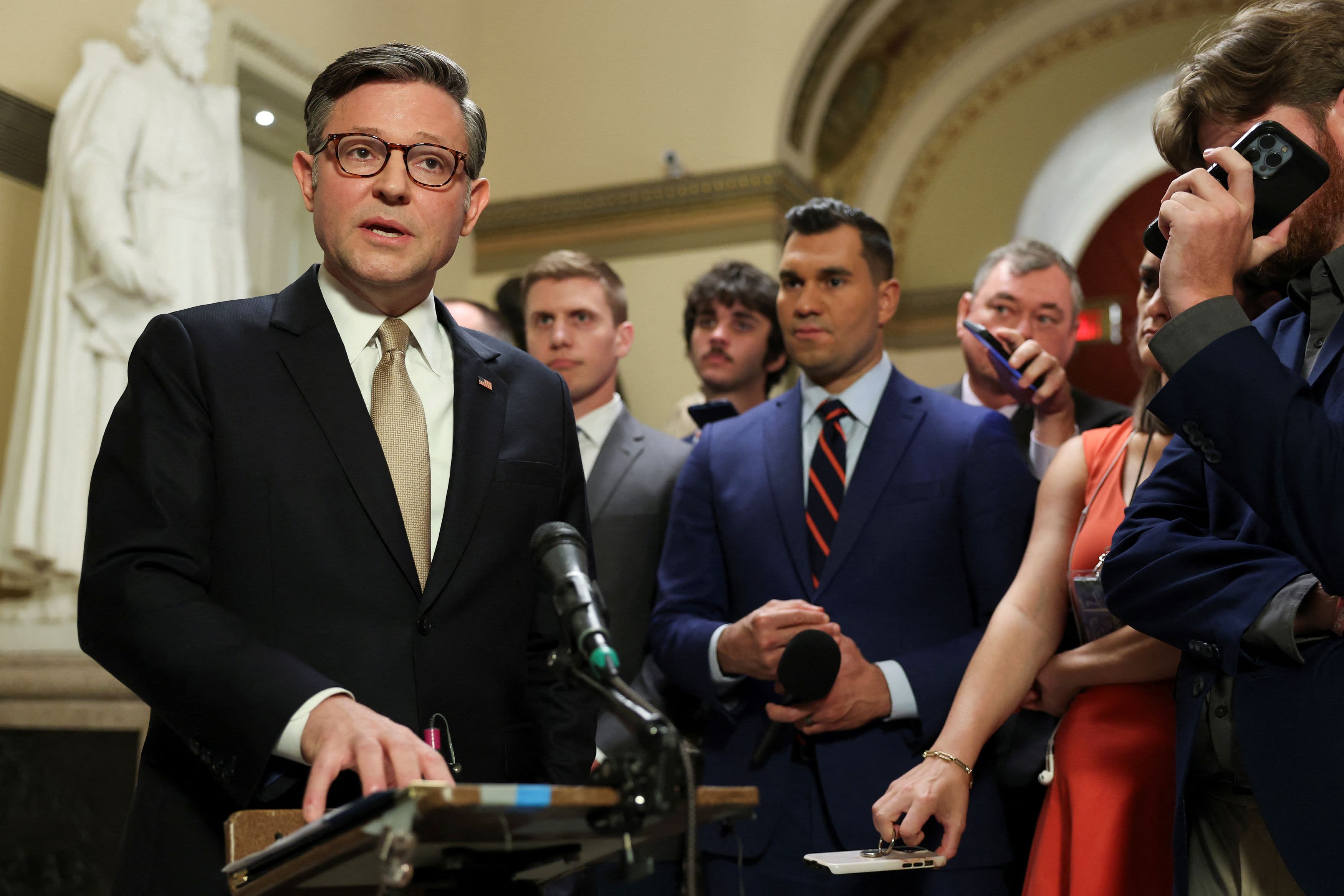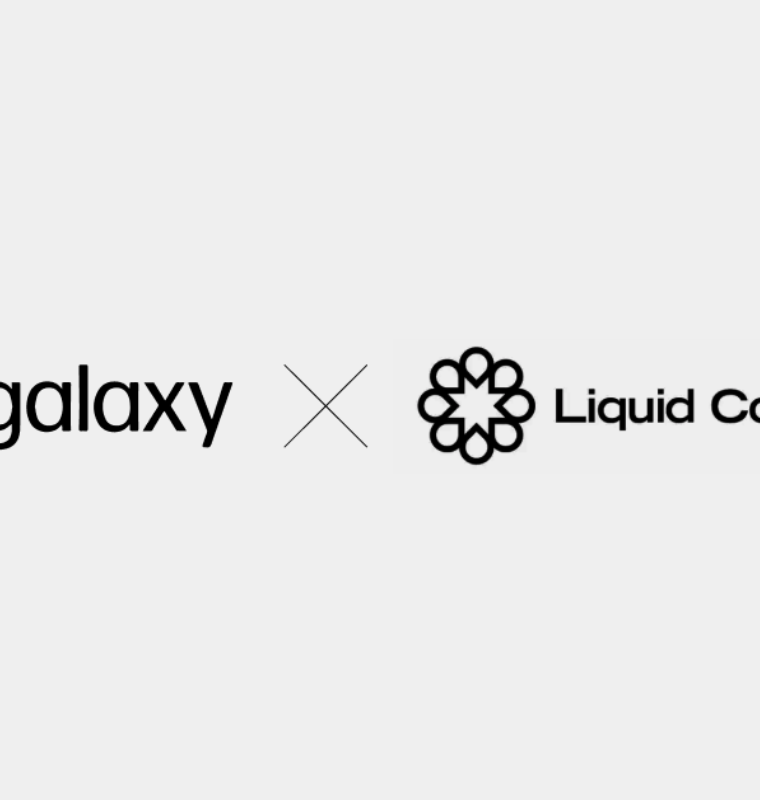Massie Warns GOP Risks Losing Voter Trust if Epstein Files Vote Is Blocked
Massie Warns GOP Risks Losing Voter Trust if Epstein Files Vote Is Blocked
By
David Goldfarb
Last updated:
July 28, 2025
First Published:
August 6, 2025

U.S. House Speaker Mike Johnson (R-LA) takes questions from reporters at the Capitol in Washington, D.C., U.S., July 23, 2025. | Jonathan Ernst | Reuters
GOP Split Widens Over Epstein Files as Massie Pushes for House Vote
Tensions are rising inside the Republican Party as a bipartisan call to release long-sealed federal records related to convicted sex offender Jeffrey Epstein faces stiff opposition from House leadership. While Rep. Thomas Massie (R-Ky.) and Rep. Ro Khanna (D-Calif.) lead the charge to bring the matter to a public vote, House Speaker Mike Johnson has slammed their strategy as “reckless”—raising internal friction just months before the 2026 midterms.
The Discharge Petition: What It Is and Why It Matters
The measure in question is a discharge petition, a rarely successful legislative maneuver that bypasses standard House procedures to force a floor vote on a bill—this time, one aimed at unsealing Epstein-related files held by federal agencies. The petition needs 218 signatures to succeed, meaning its fate hinges on broad bipartisan support.
Speaker Johnson criticized the petition for its structure and alleged lack of protections for Epstein's victims. “It does not adequately include those protections,” Johnson said during a recent NBC interview.
But Massie dismissed Johnson’s critique as a “straw man argument,” insisting that victim identities would remain protected. “We carefully drafted the bill to ensure that names of victims are redacted and any illegal content—like child pornography—is explicitly excluded,” he said on ABC’s This Week.
What’s at Stake Politically
Massie went a step further, warning that the Republican Party could face significant electoral consequences if it continues to block the vote.
“If we go into the midterms and voters see Republicans stonewalling transparency after promising accountability, we’ll lose the majority,” Massie said bluntly.
He also criticized Johnson for sending the House into recess without scheduling a vote, suggesting it was a move to sidestep responsibility.
“The question is, why did we adjourn early? Why are we avoiding this vote when transparency is what the public is demanding?” he asked.
Massie hinted that pressure from constituents during the August recess might ultimately force leadership to act.
Growing Bipartisan Support—And Public Pressure
Despite Republican leadership’s resistance, support for the measure is growing across party lines. Prominent Democrats such as Nancy Pelosi (D-Calif.) and Alexandria Ocasio-Cortez (D-N.Y.) have backed the release of the files.
Polls conducted in July show that over 72% of Americans—across party affiliations—support making Epstein’s case files public. The Epstein case has long sparked public outrage and fueled speculation about elite networks of power, influence, and cover-up.
“The longer these files remain sealed, the deeper public mistrust grows in our institutions,” said Khanna in a recent CNN interview.
Trump, Maxwell, and the Conspiracy Undercurrent
Former President Donald Trump, who had known Epstein personally before cutting ties in the mid-2000s, has mostly sidestepped recent questions about the case.
“I have nothing to do with the guy,” Trump said last week when asked about Epstein’s death in 2019 while awaiting trial on federal sex trafficking charges. The Trump administration has since faced criticism for walking back previous pledges to fully release Epstein-related files.
Adding further complexity, Ghislaine Maxwell—Epstein’s longtime associate convicted in 2021—was recently granted limited immunity to speak to investigators. This protection, granted by the Justice Department, allows her to provide information without facing additional charges stemming from her testimony.
Maxie responded sharply when asked whether a potential Trump pardon for Maxwell was acceptable:
“She doesn’t deserve that. And it’s impossible to believe she and Epstein orchestrated all of this alone,” he said. “It’s time we find out who else was involved—through documents, financial records, sealed plea deals, and more.”
Speaker Johnson declined to comment on the possibility of a Maxwell pardon, only saying, “That’s a decision for the president.”
A Transparency Test for Congress
This renewed battle over access to Epstein’s files is not just about political optics; it’s becoming a referendum on government transparency, accountability, and whether elected officials are serious about uncovering systemic abuse involving the rich and powerful.
As the discharge petition gains traction, the weeks ahead will test whether Congress is willing to confront uncomfortable truths—or whether political caution will once again win the day.
Final Takeaway:
The Epstein file vote is shaping into a key moment for congressional integrity. If House leadership continues to block the motion, they may face more than just political blowback—they could lose their grip on the very base that put them in power.
Popular articles
Subscribe to unlock premium content
Disney’s Timeless Magic and How the Entertainment Giant Continues to Shape Culture and Innovation

Imran Khan’s Economic Missteps Amid Political Chaos in Pakistan

The Philippines’ Digital Shift How Remittances and BPO Are Fueling Growth

Disney’s Timeless Magic and How the Entertainment Giant Continues to Shape Culture and Innovation

Imran Khan’s Economic Missteps Amid Political Chaos in Pakistan

Disney’s Timeless Magic and How the Entertainment Giant Continues to Shape Culture and Innovation









